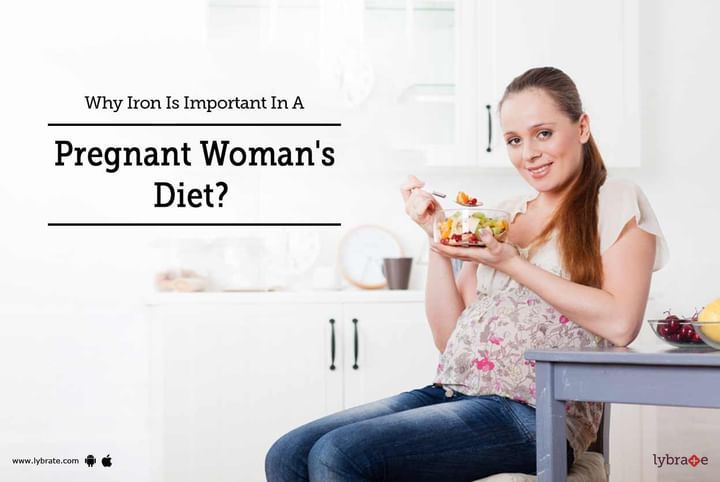Why Iron Is Important In A Pregnant Woman's Diet?
Iron is perhaps the most important nutrient for women, especially if you’re pregnant. When you're pregnant, you need twice the amount of iron than you did before, to make blood for your growing baby.
Benefits of Iron
- Iron is used to make haemoglobin, the molecule that carries oxygen in your blood. Iron also helps transport oxygen from your lungs to the rest of your body.
- If you don’t get enough iron, you will have fewer red blood cells in your blood and you will feel constantly tired. This is called iron deficiency anaemia and it can also make it harder for your body to fight infection.
- And if you are anaemic, there are higher chances of your baby to be born too small, with low-birth weight or premature. It can also lead to fetal or newborn death.
- If you're anemic at the time of giving birth, you are more likely to need a blood transfusion especially if you lose a lot of blood during delivery. And you also run the risk of compromising your baby's iron stores at its birth. This raises her risk of anemia later in infancy and can hurt her growth and cognitive development.
How much Iron should you take if you’re pregnant?
27 milligrams (mg) of iron every day is the prescribed amount of iron for pregnant women. And you should start taking this dose during your first trimester itself.
Foods high in Iron
Meat, poultry, plant-based foods and iron supplements are all sources of iron. There are two types of iron in foods
- Home iron is the type your body absorbs the best. You get this in non vegetarian foods like beef, chicken, turkey, and pork.
- Non-heme iron is the other type and this is mostly found in beans, spinach, tofu, and iron- fortified cereals.
- Raisins, kidney beans, lentils, oysters, soybeans are some other iron-rich foods.
Making the most of the iron you consume
Not many of us know this but just eating a big slab of meat is not required to get Heme iron. You can add a little meat or fish to your meal and bingo, this helps your body absorb more of iron from the other foods on your plate.
- You could cook in a cast iron pan instead of steel or aluminum pan. Liquidy acidic foods, such as tomato sauce can soak up iron from iron pans this way.
- Always include a food high in vitamin C like orange juice, strawberries, or broccoli with every meal containing vegetarian sources of iron, like beans as the vitamin C helps you absorb up to six times more iron.
- Take iron supplements one hour before or two hours after meals because iron is absorbed easily on an empty stomach.
- Space your iron and calcium supplements as calcium inhibits iron absorption.
In case you have a concern or query you can always consult an expert & get answers to your questions!



+1.svg)
